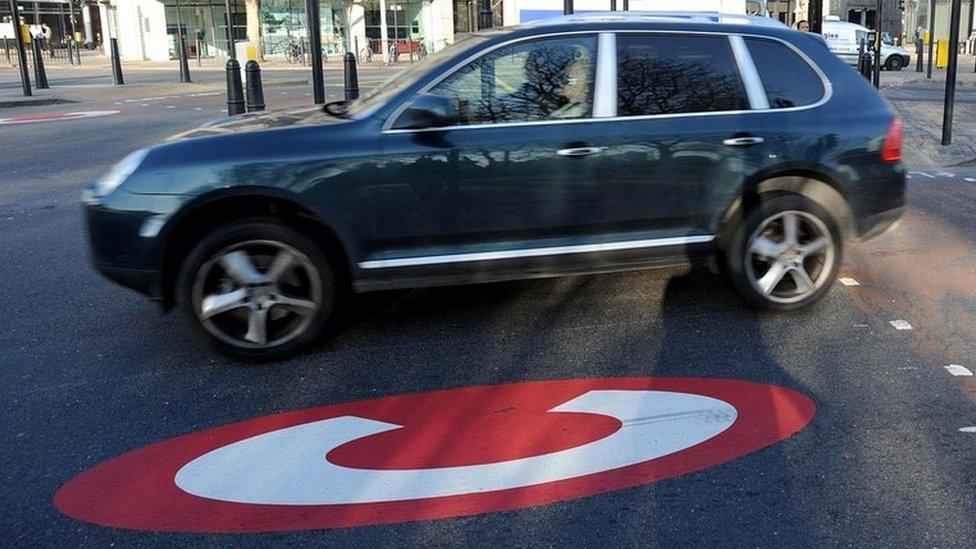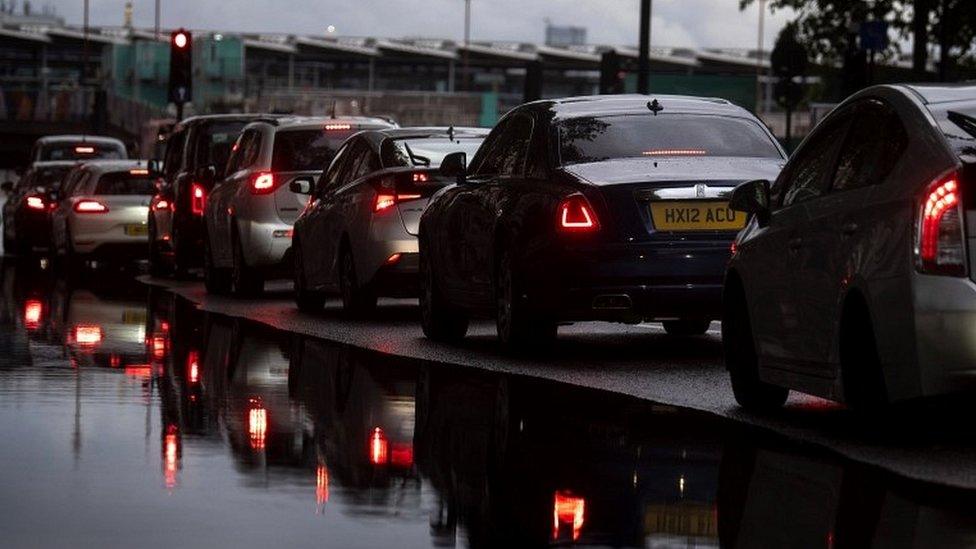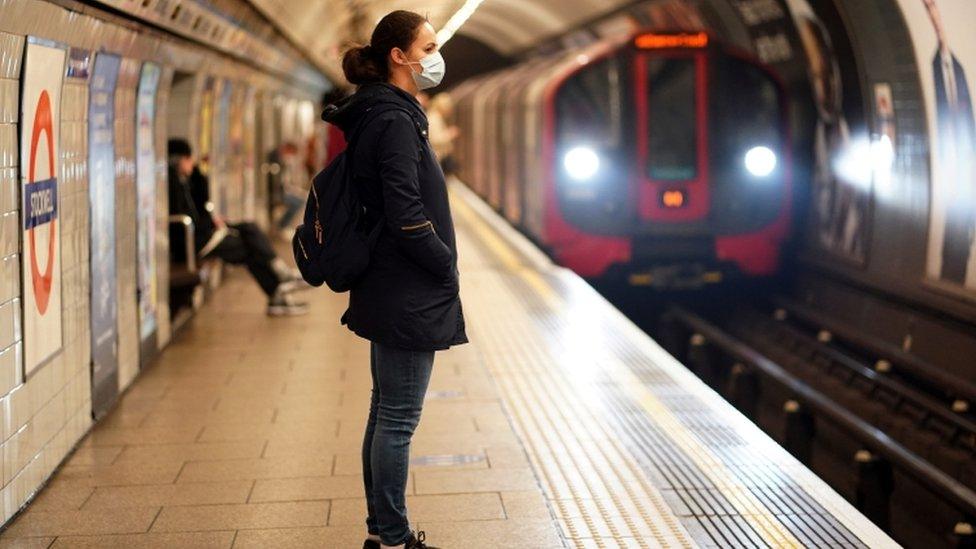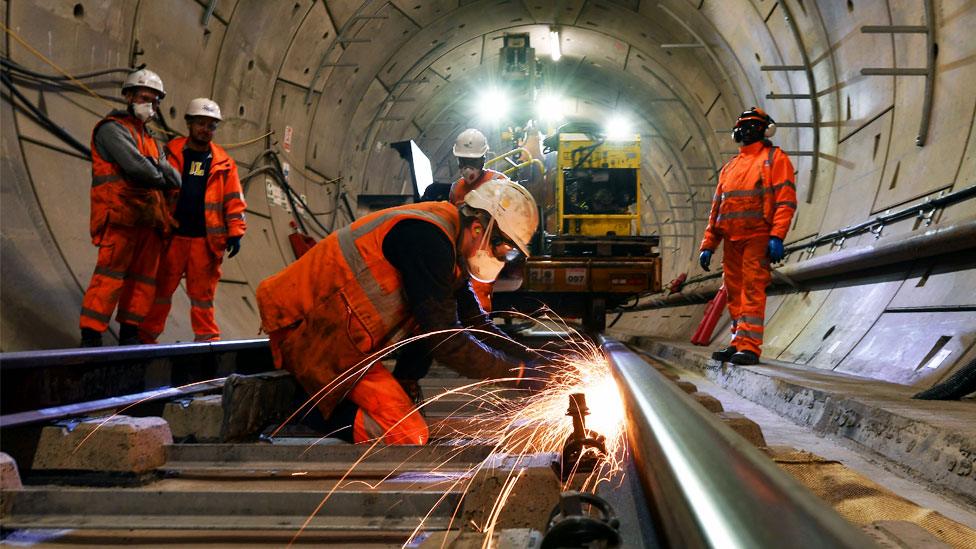TfL bailout: Is road pricing the answer for London?
- Published
- comments

The government has called for the congestion charge zone to be expanded as part of a new bailout
Talks are ongoing between Transport for London (TfL) and the Department for Transport around a bailout.
We may hear more about that towards the end of the week but the stark reality is the collapse in passenger fares has left a huge hole in TfL's finances.
By law it has to balance its budget and if it doesn't it could declare itself insolvent using a Section 114 order, which would mean a big reduction in the services it runs.
TfL has already taken £1.6bn of government money. It is trying to get £2bn more for the rest of this financial year and £2.9bn for 2021-22.
Among the conditions that the government is asking to be attached to the bailout is the £15 congestion charge to be extended to the north and south circulars.
This would take in three million Londoners and 540,000 journeys a day.
It would be very unpopular.

The congestion charge was introduced to the capital in February 2003
So, is it time to look at a more sophisticated alternative?
The problem with the congestion charging zone is the technology is 20 years old and relies on cameras to enforce a flat-rate fee no matter how many miles you drive.
Could a compromise between the government and City Hall be a serious look at road pricing, where you pay per mile?
You could dissuade people from driving short journeys with perhaps higher pricing at the start.
You could also incorporate the Ultra Low Emission Zone (ULEZ) and the Low Emission Zone (LEZ) charges and drivers would proportionately pay for using the roads.
Certainly the Centre for London and the Greens and Liberal Democrats on the London Assembly have long been supporters of simpler, fairer road pricing. The Greens have estimated it could bring in £500m a year.
So far no politician has grasped the road charging nettle as it is deemed a vote loser but Mayor Sadiq Khan in July 2020 said: "TfL continues to investigate whether there are ways to better reflect distance driven, emissions, time and road danger in a smart and fair system.
"New technologies could offer the potential for more sophisticated models of paying for road use in the longer term, but any future proposals would need to be preceded by detailed feasibility work and subject to consultation."
So perhaps road pricing is not beyond the realms of possibility.
- Published16 October 2020

- Published21 August 2020

- Published8 September 2020
- Published14 May 2020

